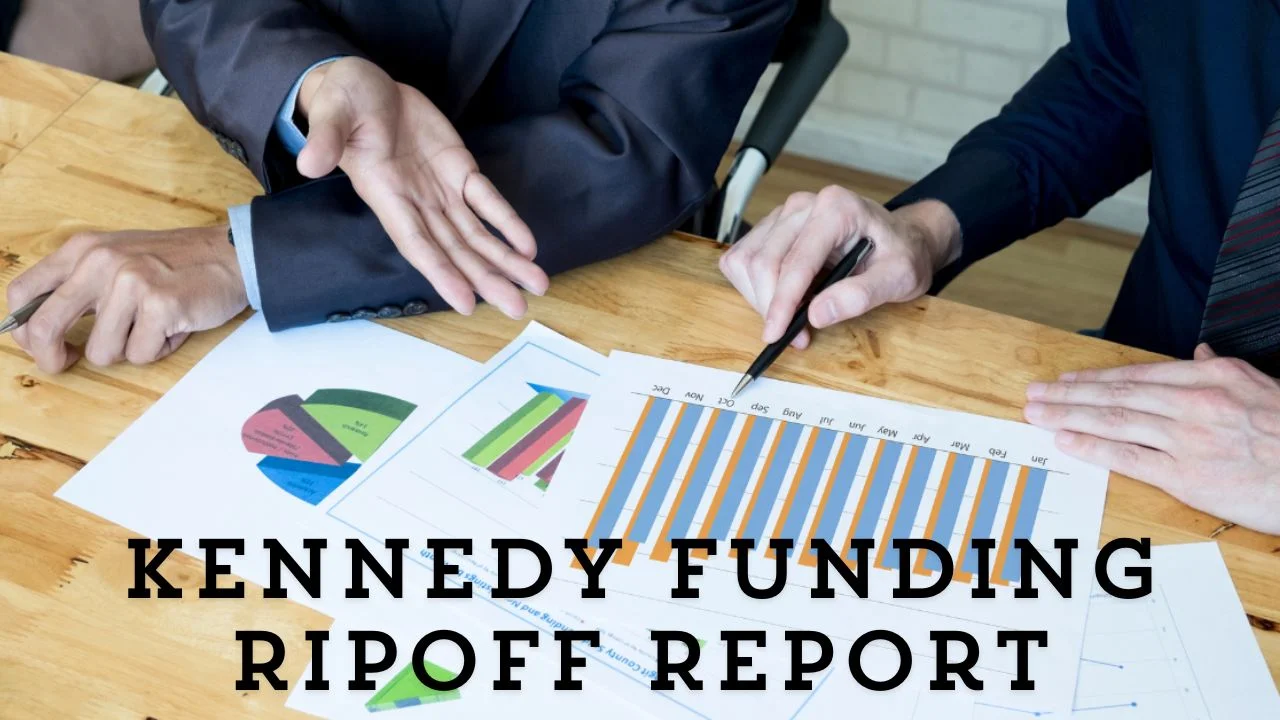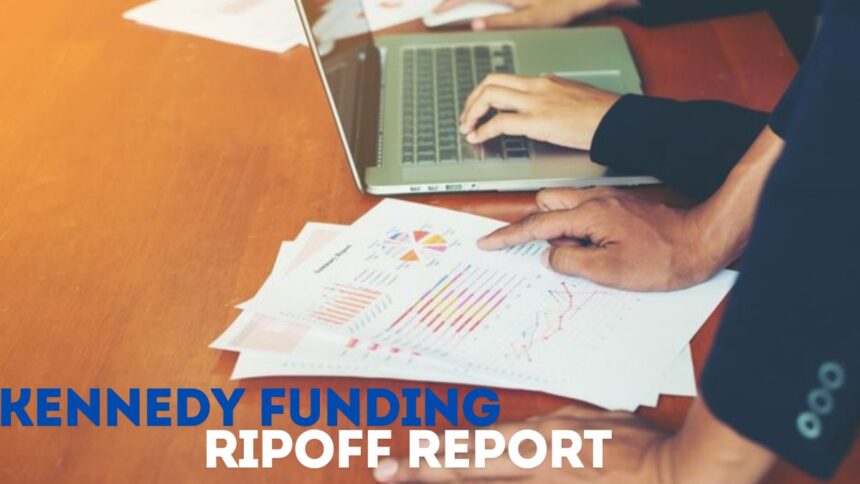The financial landscape can be a maze, especially when navigating the whispers of scams and fraud. One name that keeps surfacing in discussions is Kennedy Funding. With its share of controversies, many have turned to the Kennedy Funding Ripoff Report for insight into potential pitfalls or missteps associated with this funding source. But what does this report really entail? Is it a legitimate warning sign or just another piece of internet chatter? If you’re looking for clarity on what the Kennedy Funding Ripoff Report means for your finances, you’ve landed in the right spot. Let’s dive deep into this topic and uncover everything you need to know!
The financial crisis: A guide to kennedy funding ripoff report
The financial crisis has left many individuals and businesses searching for alternative funding sources. This is where Kennedy Funding enters the picture. Known for providing loans to those who struggle with traditional financing options, it presents both opportunities and risks.
Many potential borrowers turn to the Kennedy Funding Ripoff Report seeking guidance or reassurance before making a decision. The report serves as a platform for clients to share their experiences, which can range from positive interactions to alarming warnings about the company’s practices.
Understanding this context is crucial. It sheds light on how people perceive Kennedy Funding amid ongoing financial instability. As more voices contribute to the conversation, it becomes essential to discern fact from fiction in these reports, ensuring that you make informed decisions based on accurate information rather than fear-driven narratives.
10 facts about the kennedy funding ripoff report
The Kennedy Funding Ripoff Report has sparked considerable discussion. Here are ten noteworthy facts surrounding this topic.
First, the report claims to expose fraudulent activities linked to certain funding practices. It serves as a warning for potential investors and borrowers alike.
Second, many individuals have shared their experiences on various platforms. These testimonials aim to inform others about possible pitfalls in financial dealings.
Third, not all reports are verified or credible. Always approach any claim with caution and do thorough research before making decisions.
Fourth, some users argue that the report can exaggerate situations for dramatic effect. This leads to misunderstanding among those unfamiliar with the details.
Fifth, it highlights specific cases where people felt misled or cheated by lenders and brokers.
Sixth, awareness derived from this report encourages better financial literacy among consumers.
Seventh, multiple industries find themselves scrutinized due to these allegations of misconduct.
Eighth, legal actions have arisen based on findings within the report’s content.
Ninth, stakeholders often engage in heated debates about its validity and implications.
Tenth, despite criticism regarding accuracy or bias—many still regard it as a valuable resource when navigating funding options.
Top 5 myths about the kennedy funding ripoff report
Myth 1: The Kennedy Funding Ripoff Report is an official government document.
Many believe this report comes from a credible governmental source. However, it’s actually generated by private entities with no ties to any regulatory body.
Myth 2: All claims in the report are validated facts.
A significant number of reports contain subjective opinions. This doesn’t mean they’re accurate or reliable for decision-making.
Myth 3: The report is only relevant for investors.
While many think it’s geared solely towards those investing, consumers looking for loans can also benefit from understanding its content.
Myth 4: If your name appears, you’ll face immediate legal consequences.
Not every mention leads to litigation; many cases remain unresolved without recourse unless pursued further by the parties involved.
Myth 5: It’s easy to remove negative reports about oneself.
Getting information removed takes effort and often requires substantial proof or intervention through proper channels.
Exploring the impact of the kennedy funding ripoff report

The Kennedy Funding Ripoff Report has stirred significant conversations in the financial landscape. Its implications reach far beyond mere headlines.
Many potential investors find themselves questioning their choices. The report has led to increased scrutiny of funding sources, pushing individuals to conduct thorough research before committing funds.
Moreover, it has spurred regulatory bodies to enhance oversight on financial practices. Increased vigilance from authorities may lead to tighter regulations in the industry, aimed at protecting consumers and investors alike.
On a personal level, those mentioned in negative light can experience reputational damage that lingers long after the initial report. This can deter future business opportunities and partnerships.
This ripple effect touches various sectors, prompting a deeper dialogue about ethics and transparency within funding organizations.
A comprehensive look at the kennedy funding ripoff report
The Kennedy Funding Ripoff Report has stirred significant discussions across various platforms. It highlights allegations against the company, suggesting deceptive practices in financial dealings.
Numerous individuals have shared their experiences. They describe feelings of betrayal and frustration when seeking loans or investments. The report serves as a cautionary tale for potential investors.
Understanding this report is crucial for anyone considering partnership with Kennedy Funding. It’s not just about the numbers; it’s about trust and transparency in business transactions.
Critics argue that the report lacks comprehensive evidence to support its claims, while supporters maintain it sheds light on questionable practices within the industry.
Analyzing these contrasting opinions can provide valuable insights into how companies like Kennedy operate and impact investor confidence significantly.
Navigating the kennedy funding ripoff report
Navigating the Kennedy Funding Ripoff Report can feel overwhelming at first.
Start by familiarizing yourself with the terminology used in financial reports. Understanding common phrases will help clarify your research.
Next, seek out credible sources. Look for expert analyses and verified testimonials to gain balanced insights.
Pay attention to patterns in complaints. Are there recurring themes? Identifying these can provide context on common issues faced by investors or clients.
Don’t rush through your findings. Take time to digest each piece of information before forming an opinion. The more you understand, the better equipped you’ll be to make informed decisions.
Engage with communities online that discuss experiences related to this report. Real-life stories often offer valuable perspectives not found in formal documents.
Where does the kennedy funding ripoff report Come From?
The Kennedy Funding Ripoff Report has its roots in consumer reviews and feedback. It emerged as a response to various complaints about funding practices that customers found questionable.
Individuals began sharing their experiences online, leading to the creation of dedicated forums and sites where people could voice concerns. These platforms became essential for potential clients seeking information before committing to financial services.
As word spread, more users started contributing their stories. This collective effort aimed at exposing what many perceived as deceptive tactics used by certain companies in the funding sector.
Various watchdog organizations also played a role. They gather data from countless sources, helping shape the narrative around these financial entities while ensuring transparency and accountability.
In essence, the report is a culmination of community-driven insights focused on protecting consumers from potential scams within the funding landscape.
What are the implications of the kennedy funding ripoff report?
The implications of the Kennedy Funding Ripoff Report ripple through various sectors. For potential investors, it raises red flags about transparency and accountability in financial dealings.
People who come across this report may experience heightened skepticism towards similar funding platforms. Trust is a crucial element in finance, and reports like these can tarnish reputations overnight.
Small businesses seeking funding could face challenges as lenders tighten their criteria. They might become more cautious after seeing negative assessments linked to funding sources.
Additionally, the report fosters an environment where due diligence becomes paramount. Investors may invest more time researching before committing funds.
For companies mentioned negatively, damage control is essential. The need for a robust public relations strategy arises to mend trust with clients and stakeholders alike.
Conclusion
The Kennedy Funding Ripoff Report has sparked significant conversation and debate. It highlights the struggles many individuals face in seeking financial support during challenging times. The nuances surrounding this report reveal both truths and misconceptions that can deeply influence public perception.
Understanding where the report originates, its implications, and the myths surrounding it is critical for anyone navigating these waters. Awareness of these factors not only fosters informed discussions but also equips potential investors or borrowers with knowledge to protect themselves from pitfalls.
As you explore this topic further, consider how awareness can empower decision-making in your financial journey. Whether you’re assessing a funding opportunity or simply trying to understand more about financing options, staying informed is key.





